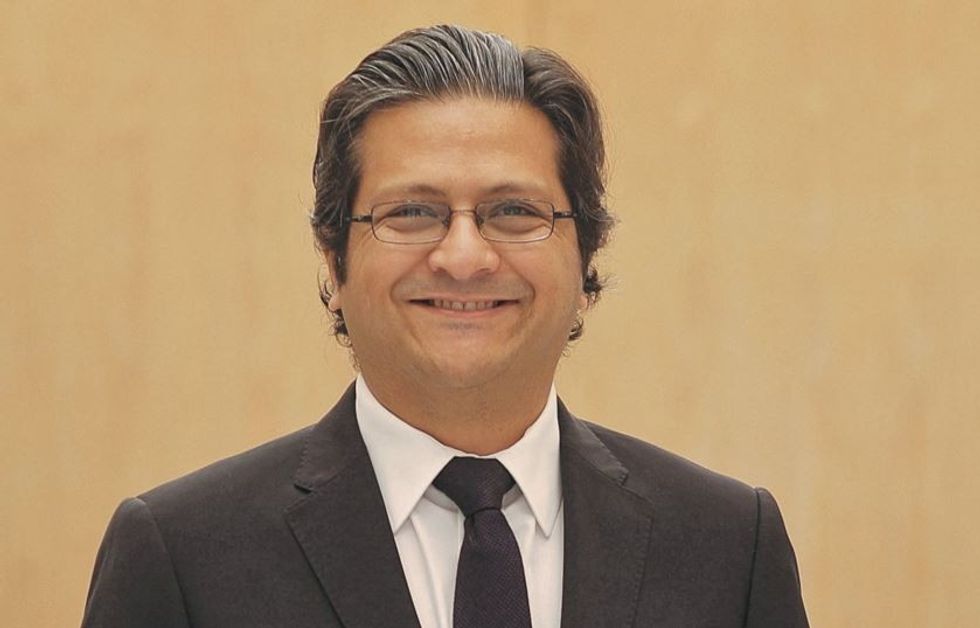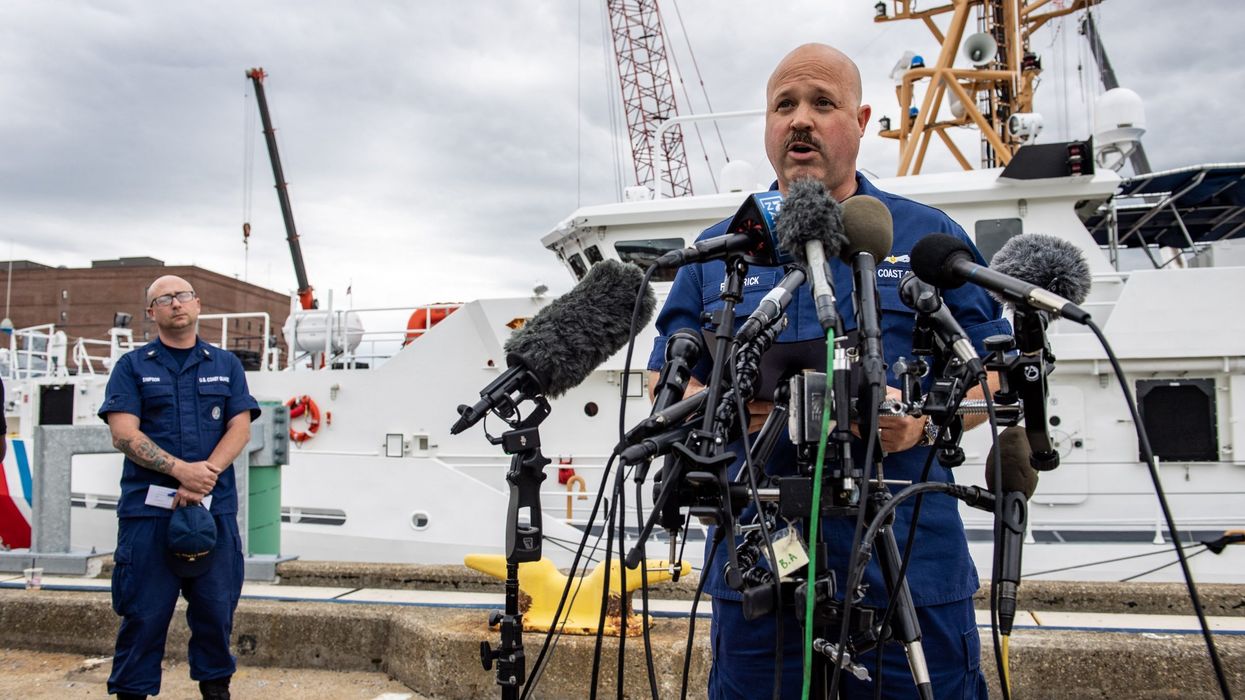SEARCH teams detected underwater sounds while scanning the North Atlantic for a tourist submersible that vanished with five people aboard during a deep-sea voyage to the century-old wreck of the Titanic, the US Coast Guard said early on Wednesday (21).
The detection of the sounds by Canadian aircraft on Tuesday (20), day three of the search, was reported by the Coast Guard as the clock ticked down to the last 24 hours of the missing craft's presumed oxygen supply.
Robotic undersea search operations were diverted to the area where the sounds seemed to originate, but there was still no tangible sign of the missing vessel, the Coast Guard said on Twitter.

The 21-foot-long submersible Titan, operated by US-based OceanGate Expeditions, lost contact with its parent surface vessel on Sunday (18) morning about one hour, 45 minutes into what should have been a two-hour dive to the site of the world's most famous shipwreck.
The mini-sub was designed to remain underwater for 96 hours, according to its specifications, giving its five occupants until Thursday (22) morning before air supply would run out, if the craft was still intact.
The fate of the submersible and those aboard remained a mystery as teams from the US, Canada and France mounted an intensifying search in an area of open sea larger than the state of Connecticut.
The wreck of the Titanic, a British ocean liner that struck an iceberg during its maiden voyage on the night of April 14, 1912, and sank the next morning, lies some 12,500 feet (3,810 meters) beneath the surface - about 900 miles (1,450 km) east of Cape Cod, Massachusetts, and 400 miles (644 km) south of St. John's, Newfoundland.
As of Tuesday, aircraft and ships from the US Coast Guard, US Navy and Canadian armed forces had combed more than 7,600 square miles of the North Atlantic, US Coast Guard Captain Jamie Frederick told reporters at a press conference on day three of the search.
Those aboard Titan for a tourist expedition that costs $250,000 per person included British billionaire Hamish Harding, 58, and Pakistani-born businessman Shahzada Dawood, 48, with his 19-year-old son Suleman, who are both British citizens.
French explorer Paul-Henri Nargeolet, 77, and Stockton Rush, founder and CEO of OceanGate Expeditions, were also reported to be on board. Authorities have not confirmed the identity of any passenger.
The search effort included Lockheed P-3 Orion turboprop airplanes designed with sub-surface surveillance gear to detect submarines, Frederick said.
The Canadian military dropped sonar buoys to listen for any sounds that might come from the Titan, and a commercial pipeline-laying vessel with a remote-controlled deepwater submersible was also searching near the site, he said.
Separately, a French research ship carrying its own deep-sea diving robot submersible was dispatched to the search area at the request of the US Navy and was expected to arrive Wednesday night local time, the Ifremer research institute said.
Canada's P-3 aircraft ended up detecting underwater noises in the search area on Tuesday, after which "ROV" (remotely operated vehicle) searches were "relocated in an attempt to explore the origin of the noises," according to the Coast Guard tweets.
(Reuters)













